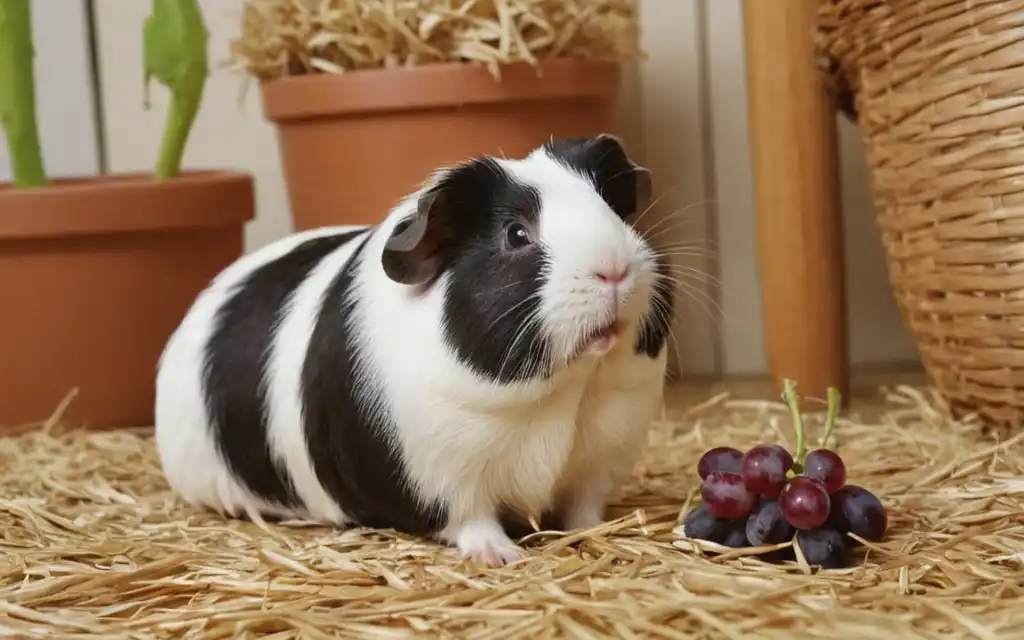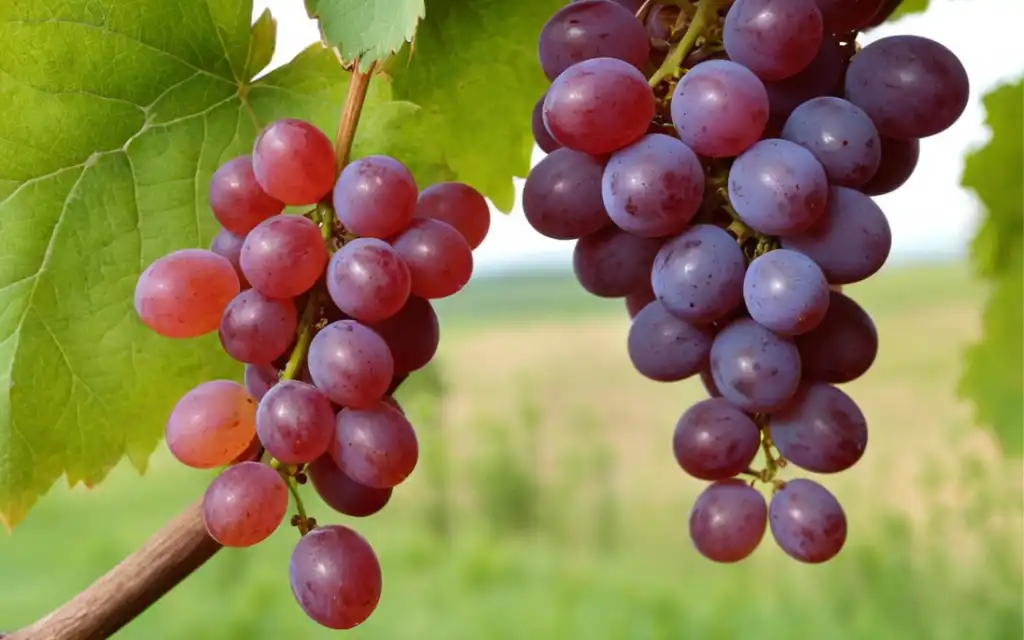Every pet owner who owns a guinea pig wants to provide the utmost care and attention to their beloved little furballs. Following a good and proper diet is one of the most important aspects that need to be considered to fulfill the nutritional needs of this animal.
Feeding your guinea pig the right food can make them healthy and playful. So, choosing the food that is best for your pet is necessary. Some guinea pig owners wonder if a guinea pig can be given fruits like grapes.
So, here is everything you need to know about whether guinea pigs eat grapes and the benefits and risks of feeding grapes to the little pigs.
What is the Normal Diet of a Guinea Pig?
These little rodents are herbivores and, thus, consider plant-based food in their daily diet. Here are some common and most-loved foods that guinea pigs prefer to eat.

- Fresh vegetables: Kale, leafy vegetables such as spinach and lettuce.
- Fruits: Fruits contain a high amount of sugar. So, it should be given in moderation.
- Hay: Giving hay to eat can be beneficial to make the teeth and keep their digestive system healthy.
- Pellets: They can provide essential minerals and vitamins to your tiny pigs. Pellets developed especially for guinea pigs are easily available.
Can Guinea Pigs Eat Grapes?
Yes, grapes can be given to guinea pigs occasionally. As grapes are non-toxic so, they can be a favorite treat for the little pigs. However, as fruits like grapes are high in sugar so, it is necessary to consume them in moderation.
Even though your pig might love the sweet taste of grapes, overfeeding can lead to health issues.
Nutritional benefits of grapes for guinea pigs
Besides being tasty, grapes have several other nutritional benefits for little rodents. Here are some of them.
- Hydration: Consuming grapes can keep your guinea pigs hydrated, as grapes have a high water content.
- Vitamin C: Grapes contain a small amount of vitamin C that can be beneficial for your guinea pigs, as they cannot produce vitamin C by themselves.
- Antioxidants: Grapes contain antioxidants that protect cells from damage.
What are the potential risks of feeding grapes to guinea pigs?
Even though your guinea pigs love eating grapes, there are some risks you need to be aware of.
Choking hazard
The small and round shape of grapes can cause a choking hazard for baby pigs. So, it is advisable to cut the grapes before feeding them to your guinea pigs to reduce the risk.
Issues with digestion
Being little animals, the digestive system of guinea pigs is quite sensitive. So feeding them a large amount of grapes too quickly can cause diarrhea or an upset stomach. Always monitor the reaction of your pet if you are giving them grapes for the first time.
High in sugar
Grapes are naturally sweet because of their high sugar content. So, feeding too many grapes to these little rodents can cause severe health issues, such as obesity and diabetes. Grapes should always be given in moderation and as an occasional treat.
Safer ways to feed guinea pigs grapes

If you want to treat your guinea pigs to some grapes. Follow the safety tips below.
Wash thoroughly
It is important to wash the grapes thoroughly before feeding them to your little pigs as the skin of the grapes can have chemicals or pesticides attached to them.
Cut into small pieces
To make it easier for the guinea pigs to eat and to prevent choking, the grapes should be cut into smaller pieces.
Feed in moderation
As grapes are high in sugar, so, it is always suggested to offer grapes in moderation to your little rodent. Don’t feed your guinea pig more than 1 to 2 small pieces of grape per week.
Monitor
If you are feeding grapes to your guinea pigs for the first time, then ensure you monitor the animal for any signs of digestive issues. If there is no discomfort, you can offer grapes to your beloved pet occasionally.
What are some other fruits guinea pigs can eat?
Alongside grapes, here are some other fruits that your little pigs will love to eat.
| Food | Vitamin C (mg) | Sugar (g) |
|---|---|---|
| Melons (e.g., cantaloupe) | 36.7 | 8 |
| Blueberries | 9.7 | 10 |
| Apples | 4.6 | 10 |
| Strawberries | 58.8 | 4.9 |
Blueberries – Rich in antioxidants. Feed in moderation due to high sugar content.
Melons – Honeydew, cantaloupe, and watermelons are refreshing and hydrating.
Apples – Offer small slices after removing the core and seeds.
Strawberries – Contain vitamin C. Feed sparingly due to high sugar content.
What foods should you avoid feeding the guinea pigs?
Here are some foods that are not at all safe for your favorite pets. So, avoid feeding them.
- Dairy products – Avoid feeding dairy products to your guinea pigs, as they are lactose intolerant.
- Potatoes – Can cause digestive issues due to high starch content.
- Chocolate – This can be toxic to most animals and guinea pigs.
- Garlic and onions – can cause anemia and digestive issues.
Final touch up
Even though guinea pigs can eat grapes but, it should always be in moderation. As grapes are high in sugar content, so avoid over-feeding to prevent digestive issues and discomfort. To prevent choking, wash and cut the grapes into quarters before feeding the little pigs.
Even though feeding grapes to your little rodents has some benefits, it is important to remember that grapes should only be a small part of the guinea pig’s diet. The maximum amount of food should come from fresh vegetables and hay. Fruit should only make up about 5% of the pig diet.
To keep your pet happy and healthy, use guinea pig-safe foods. At the end of the day, the good health of your furry friend is what matters the most.

